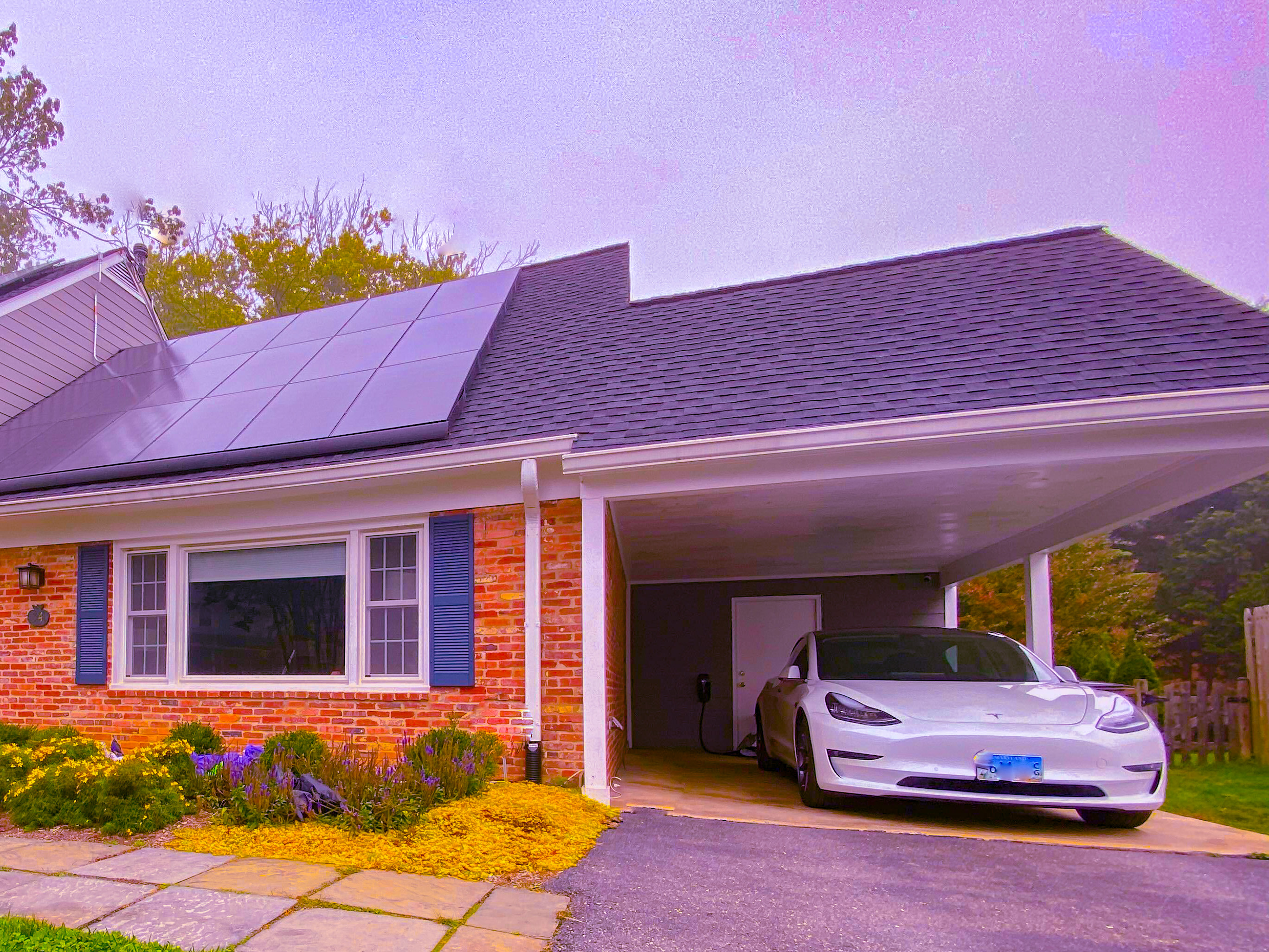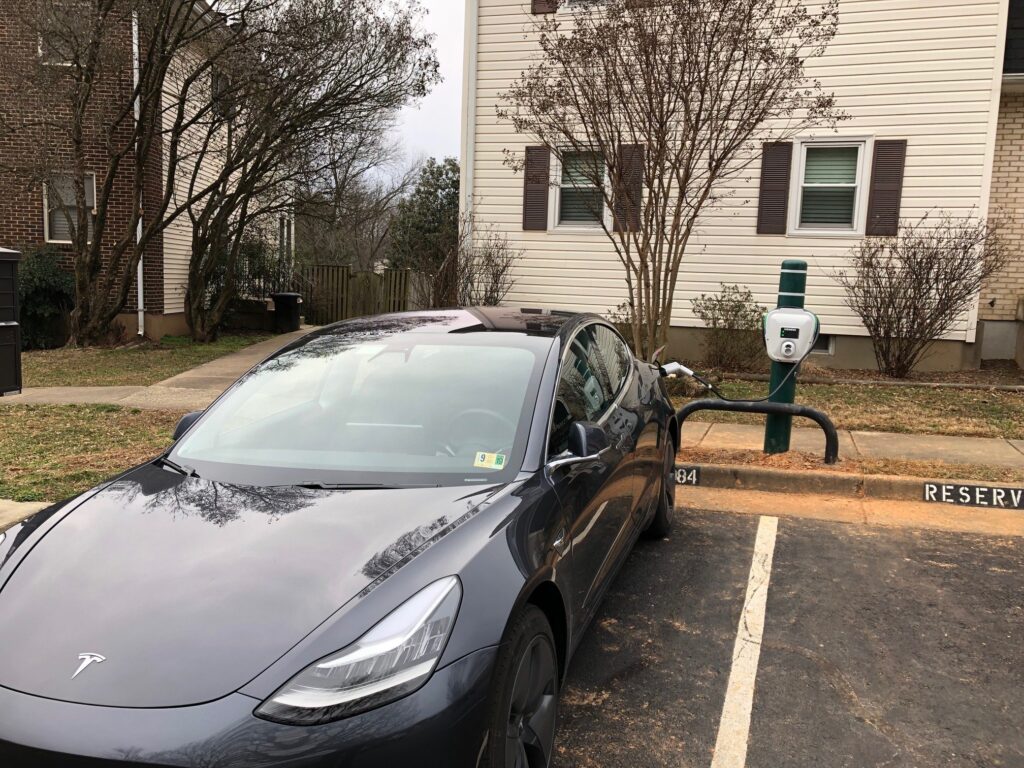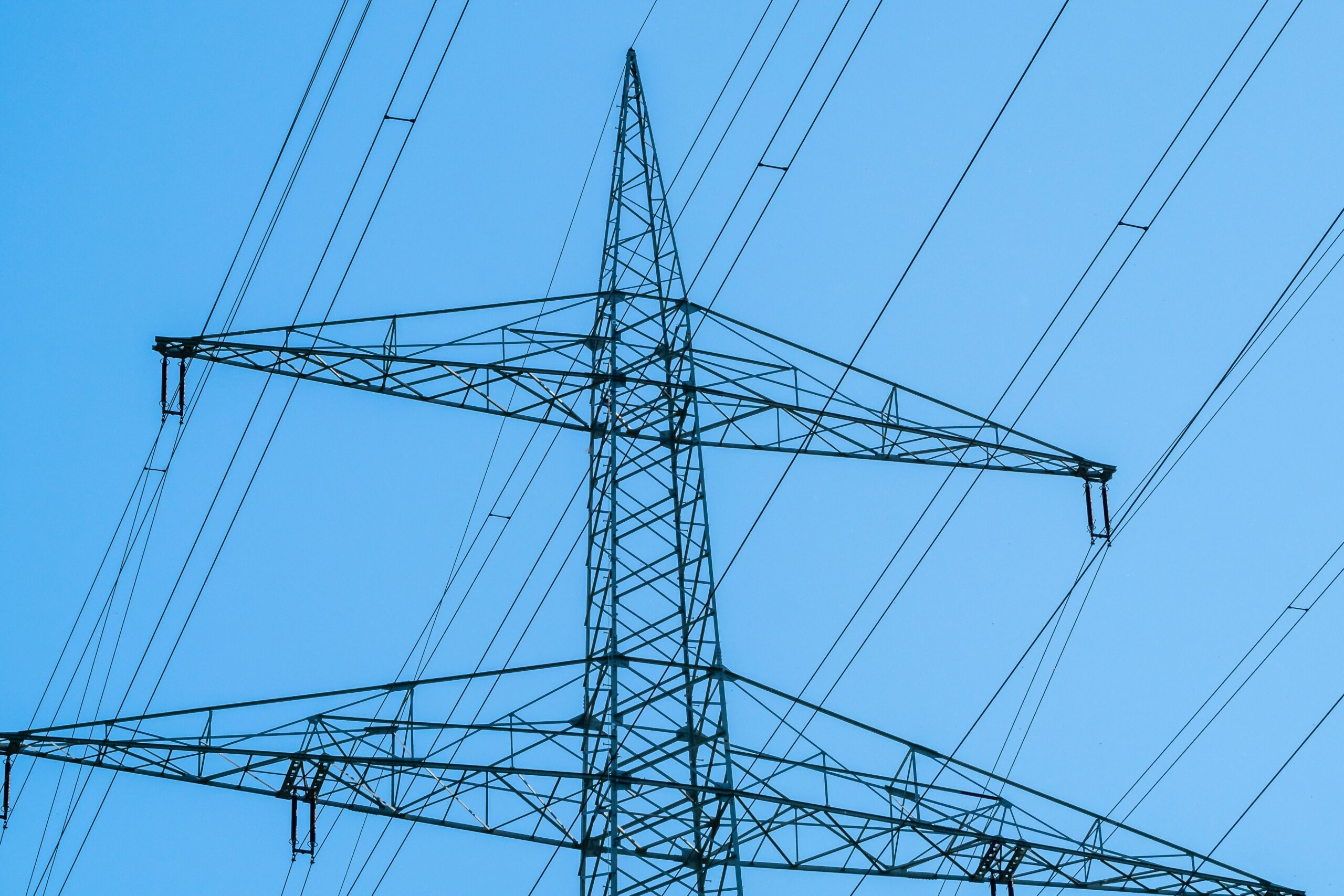We are so hyped about the massive trend toward electric vehicles right now. As the cost continues to drop, more people are realizing that owning an EV both saves money and reduces your carbon emissions, especially if you add the benefit of charging with solar energy.
In fact, between the Biden Administration making EVs and charging infrastructure a priority, and new state laws making them more affordable, we think it’s hard to justify buying a fossil-fueled car these days. The benefit of owning an EV is especially clear when you take into account the impact that transportation has on climate change. In our area, transportation accounts for about 45% of our carbon emissions. Buying an EV makes you a part of the solution instead of part of the problem.
The Emissions: How Clean is your Drive with an EV?
An electric vehicle’s emissions are only as clean as the electricity it’s powered by. If you charge your EV with grid power (the typical electricity that comes from your utility company), you’re cutting your greenhouse emissions way down, but you’re not reducing them to zero. That’s because grid power is still made up of power sources that cause greenhouse gas emissions, like natural gas. Exactly how much depends on where you live and what the source of the electricity is on the grid in your area.
For example, the electricity that comes from the power grid in VA and MD comes mainly from natural gas and nuclear, with some coal and very little (1-2%) renewable energy thrown in. In these states it’s about 70% cleaner to use an EV charged with grid power. Shout-out to DC for having 15% solar in their mix, with biomass and natural gas making up the rest. In DC, it’s about 80% cleaner.

The Savings: How Much Will Driving an EV on Grid Power Raise my Electric Bill vs. the Cost of Gasoline?
The short answer is that if you don’t have solar, then on average it’ll cost you about half as much to power your car with electricity than gas. But in the same way that your emissions are dependent on your specific area, the cost to drive an EV charged with grid power is also dependant on your location and how much you pay for electricity.
In our area, there is also no benefit to charging your car at a certain time of day; it costs the same no matter what. You can get a ballpark estimate of how much extra it’s going to cost you by using the Department of Energy’s calculator called EGallon that shows you your savings based on fuel costs in each state.

So how do we get to the least expensive option and zero emissions? Go solar!
Many people own an EV without installing solar panels, and as we’ve seen, their emissions and cost of operation are still reduced. But there’s nothing cooler than having an electric car that runs off the sun, giving us free power and zero emissions. As long as your solar system is sized to cover the electricity needs of the home and the car, net metering will ensure that your utility bill will be minimal, even if you charge your car when the sun’s not shining.
Right-size your solar project for an EV
Our solar experts can help you figure out how to size your solar system to accommodate an electric car. To get a general idea, you can use the US Department of Energy’s MPGe rating tool to help you figure out how much average energy your electric car will need.
For example, the 2014 Nissan Leaf, an all-electric vehicle, has a combined fuel economy rating of 30 kWh/100 miles – this means the Leaf requires 30 kWh of electricity to drive 100 miles. If you drive 25 miles on an average day, that means you’re using approximately 7.5 kWh of electricity per day – or just over 2,700 kWh of electricity in a given year. This is the “extra” amount of electricity you’ll need your solar energy system to produce.
Armed with this information, you can work with your solar consultant to design a solar panel system that will generate sufficient power to cover both your home and your electric car. All you’ll need to complete the package is an electric car charger.
Get in Touch!
Reach out to our solar consultants today for a free, virtual consultation. They can walk you through all of the options and help you decide how to best set yourself up for a zero-emissions lifestyle. They’ll also let you know about current tax credits and other incentives, as well as the amazing rates we can offer for clean-energy-specific loans through Clean Energy Credit Union. The federal incentive tax credit is currently set at 26% through 2022. It includes solar, battery storage and electric vehicles, so get your project started today and take advantage of that great incentive!





